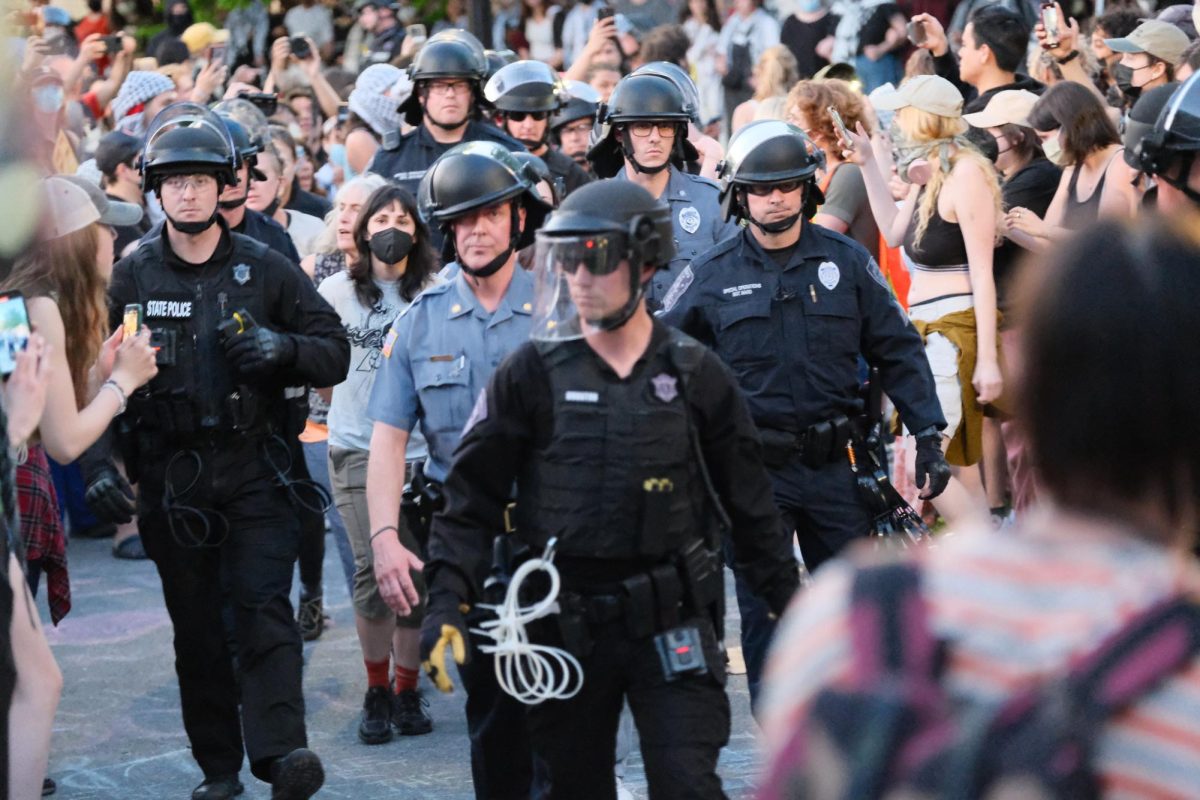
As technologies become more affordable and journalism moves towards the Internet, undergraduate reporters should develop multimedia skills, said ESPN Senior Blog Editor Matthew Lee to University of Massachusetts lecturer Steve Fox’s “Sports Journalism” class last week when talking about the future of sports journalism, and the ways the industry is being breached by new writers.
Lee said the game has changed since beginning his career with the Washington Post 15 years ago at the dawn of the Internet’s union with the media, a time when type was served online as a matter of practical simplicity. The face of online media has changed with the advent of social media platforms, mobile devices, the decline of print advertising and a culture that has grown increasingly accustomed to instant news. Lee said it has forced writers to add a range of multimedia skills to their journalistic arsenals.
For example, staff Writer Ted Miller was assigned to cover the Pac-12 over the weekend, and provided a video recap Monday morning of Week 9 from home, said Lee.
Recently ESPN’s blog network has grown with coverage of all the major sports as well as localized blogs featuring in depth reporting on individual cities, conferences, divisions, and in some cases, teams, he said.
These in-depth blogs are a response to industry changes,offering the consumer in depth reporting that before would have been unavailable, Lee said.
“They’re beat writers,” Lee said of the staff-assigned individual blogs with coverage of individual leagues and conferences.
Because of consumer interest ESPN has begun to pilot blogs specializing on individual teams, specifically the University of Notre Dame teams and their extensive fan base. This year, Lee said the focus has been on Stanford University, resting on the notion that the widely projected No. 1 pick in the 2012 NFL Draft, quarterback Andrew Luck, will generate extensive traffic.
Lee was optimistic about what the shifting landscape means for journalism students. He explained that he generally hires seasoned reporters with years of experience at reputable newspapers. But he added that opportunities are abound to hone one’s craft during undergraduate study and beyond, as digital photography and high-definition camcorders are becoming increasingly accessible to the average student.
Reporters today, Lee said, are being asked not only to write typical news stories, but to also bridge the gap between print and broadcast and produce multimedia packages, even stepping in front of the camera themselves.
Lee – who at one point in his undergraduate study saw a future for himself as a photojournalist even when the price tags on digital cameras were far beyond his grasp, emphasized the need for students to dedicate themselves to the practice and craft of journalism and the value of developing a deep portfolio of news clippings.
Lee also discussed the field of long form reporting that has grown in recent years at ESPN, through newsmagazines like E:60 and Outside the Lines, and documentary projects like the critically acclaimed “ESPN 30 for 30.”
Lee explained that when trying to break into this industry the lines are a little greyer.
Lee described senior ESPN journalist Wayne Drehs, who over the years has crafted his storytelling abilities while honing his knack for seeking out original stories and angles like few other reporters have been able to do.
Lee, citing recent conversations and time spent with Drehs, attributed this to his personality, people skills and ability to connect with and draw information out of a source, a skill Lee and Fox credit to years of experience on the job.
Lee’s parting words of advice to the students in the classroom were to continue gaining experience in the field by covering beats and understanding that a big part of the industry is about paying dues, starting off in the small avenues of high school sports and working ones way up the ladder.
Lee said,that the best coverage comes from being on the sidelines, learning the ins and outs of the game and team, even during the boring games.
“This is how you find those stories,” he said, adding that commitment to covering of the games will pay off because when the stories come around and the reporters are in the right place to get the scoop.
Brian Canova can be reached at [email protected] or followed on Twitter @BrianCanova.



















Sue Serra • Nov 27, 2011 at 6:48 pm
Hi Brian,
Just catching up on some of your articles. Boy, are you one busy guy!! I love to see you name on the articles and photos. Great writing. I know your parents are so proud of you, as are we!
Keep up the good work.
Mrs. Serra